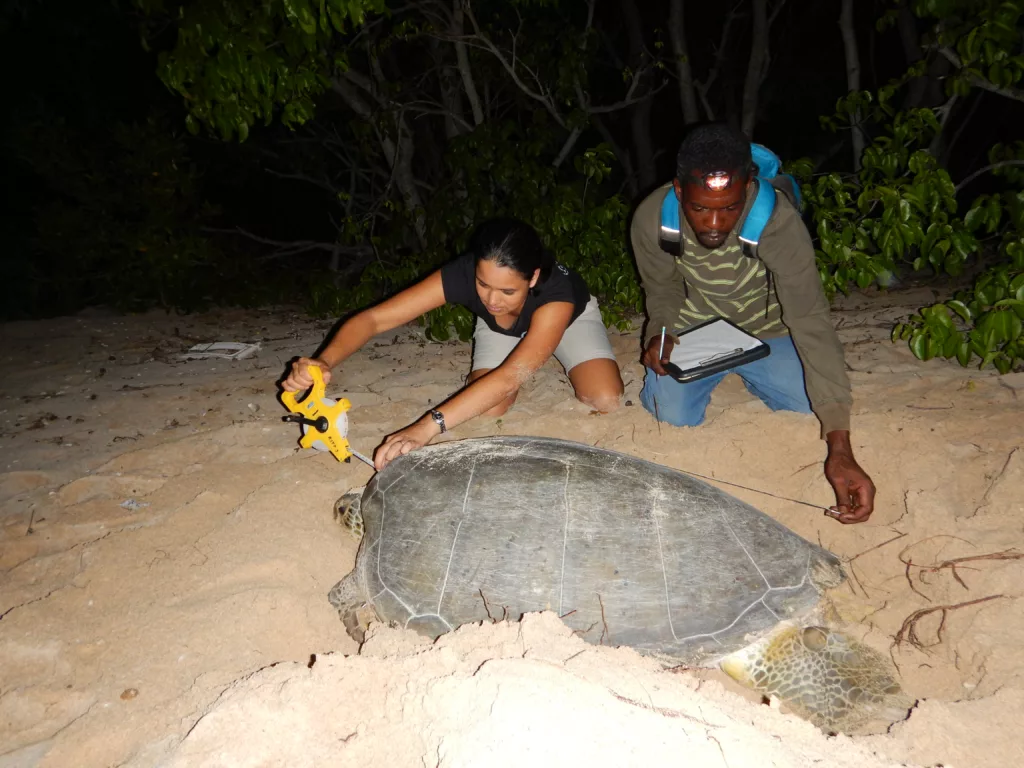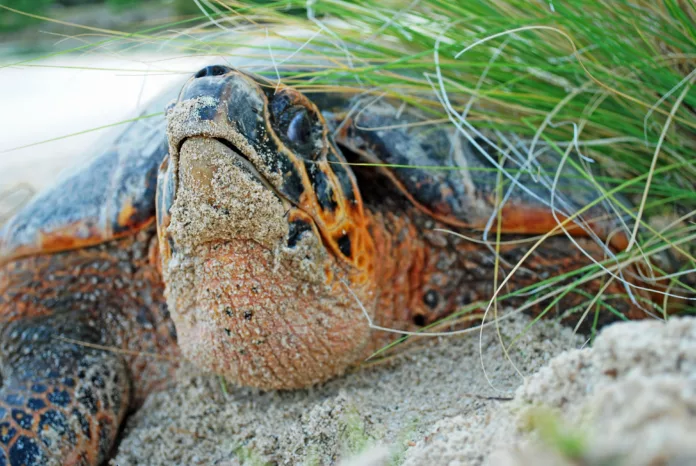By Alex Fireman
It’s the most wonderful time of the year! For the EAG’s Antigua Marine Conservation Programme, anyways. The beginning of summer marks the beginning of hawksbill sea turtle nesting season when we begin to see these critically endangered turtles grace our shores to lay their eggs in the sand.
Antigua hosts three species of nesting sea turtles: the leatherback sea turtle, the green sea turtle, and the hawksbill sea turtle. The hawksbill is our most abundant sea turtle species and is Antigua and Barbuda’s National Sea Creature.
Unfortunately, hawksbills have come close to the brink of extinction due to human activities that began hundreds of years ago. It is estimated that 90 percent of the world’s hawksbills have been lost in the last century, and populations are still in decline in many areas.
Many marine animals face threats today from climate change, such as rising sea levels, ocean acidification, increased ocean temperatures, and increased storm frequency and intensity. These negative environmental changes all work in tandem to degrade the habitats hawksbills use — sandy nesting beaches and once abundant coral reefs.
As with many large sea creatures, hawksbills also face threats from increased fishing pressure in their reef habitats. Since sea turtles need to surface to breathe air, if they become entangled underwater in discarded or lost fishing gear (also known as “ghost gear”), they may drown if they are not rescued or able to escape.
Hawksbills have faced additional historical pressure from the tortoiseshell industry. Hawksbills are known for having beautiful, intricate shells. Hawksbills are harvested for their shells to create tortoiseshell products such as combs, sunglasses, ornaments, or jewellery.

On land, sea turtles face additional threats from increasing coastal development, artificial lighting along beaches, and illegal poaching of eggs and meat. The list of threats continues and is ever growing. New challenges for these creatures continue to emerge, such as sargassum seaweed influxes on beaches and reefs. Today, it’s predicted that a turtle egg has a 1/1000 chance of survival!
Against all odds, these animals have persisted for hundreds of millions of years. They swam the seas when the dinosaurs walked on land and have survived multiple mass extinction events throughout history. Today, their environments are changing faster than they have in the past, and sea turtles are struggling to keep up and adapt. So, how can we ensure that these national, regional, and global treasures are kept around for the future?
Cue the EAG sea turtle patrol team’s entrance! Every year, dedicated conservationists, scientists, and nature enthusiasts have worked together to ensure the survival of the sea turtles that nest in Antigua. Our patrol teams stay up late into the night to identify sea turtle crawls and nests, assist the nesting mothers in a safe visit to the beach, and ensure the baby hatchlings make it to the ocean when they’re ready.
We also collect scientific data on these turtles, which allows us to understand the populations better, how they use the habitats in Antigua, and what threats they face when they’re here. For example, last year we found that the two main threats sea turtles face on Antiguan beaches are predation from invasive mongooses and disorientation from artificial beachfront lighting. We have upcoming plans to find ways to mitigate these threats for the turtles in the future.
Witnessing a mama turtle carefully lay her eggs in the sand is truly a magical experience. Two months later, those eggs will hatch, and the babies will spill out of the nest and race towards the sea. If you think this is something you’d like to observe or help protect, the EAG is now recruiting new volunteers to our sea turtle patrol team. Our patrols will begin on July 1st. If you’d like to get involved, send us an email at [email protected] stating your interest.
Antigua’s beaches are internationally renowned by the tourists who lounge in the sun during the day. At night, these beaches see a different kind of international traveller who requires just as much hospitality. Outside of patrols, there are other ways you can assist in protecting our sea turtles. Remember to minimise all beachfront lighting, never disturb a nesting turtle, and call the EAG sea turtle hotline if you see any sea turtle activity at 736-TURT or 8878.


